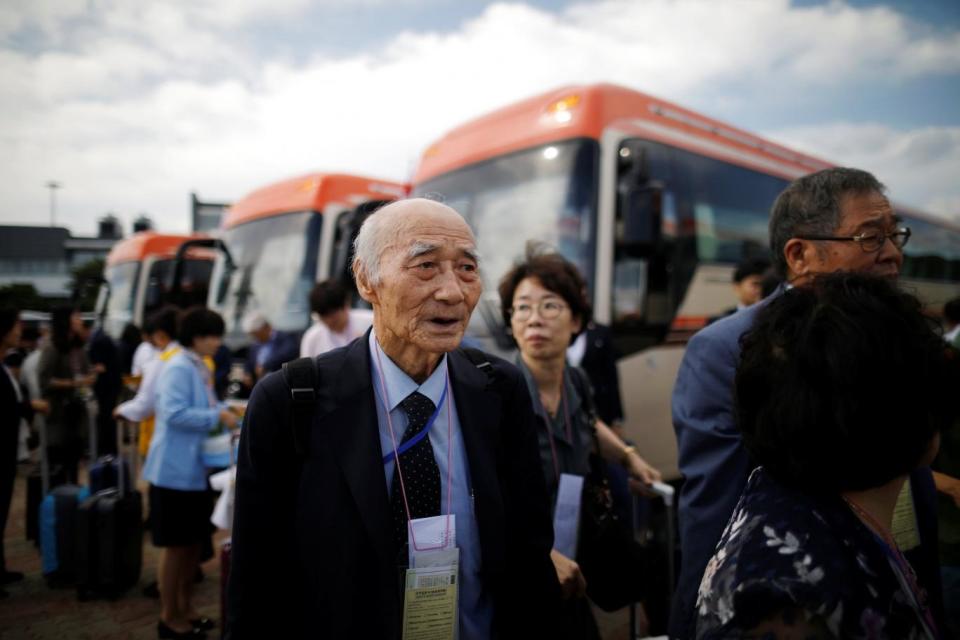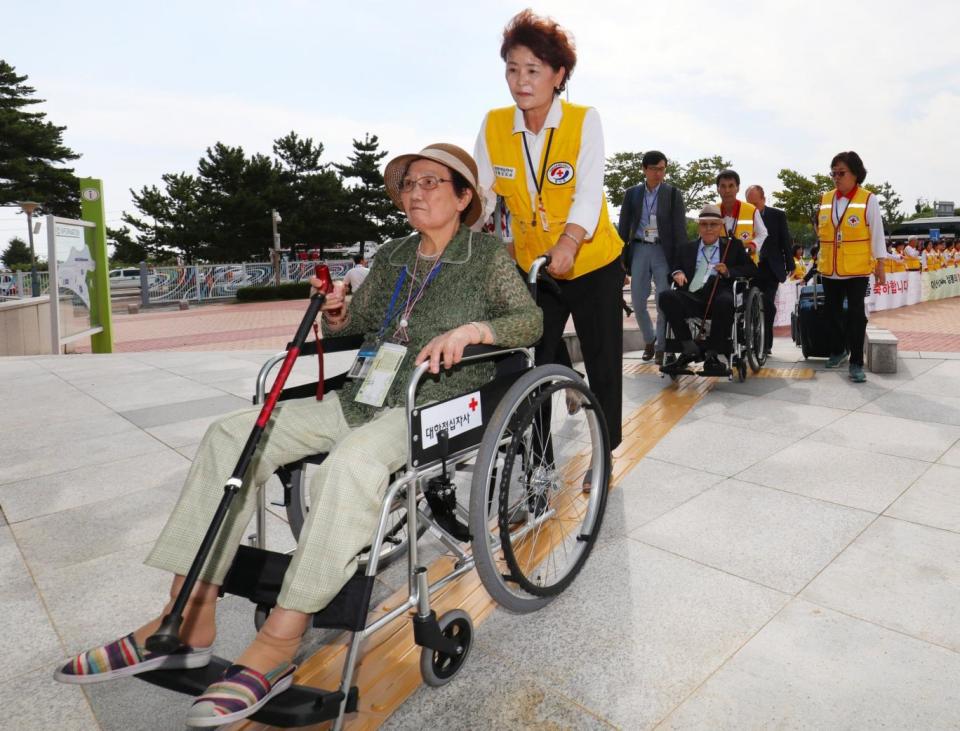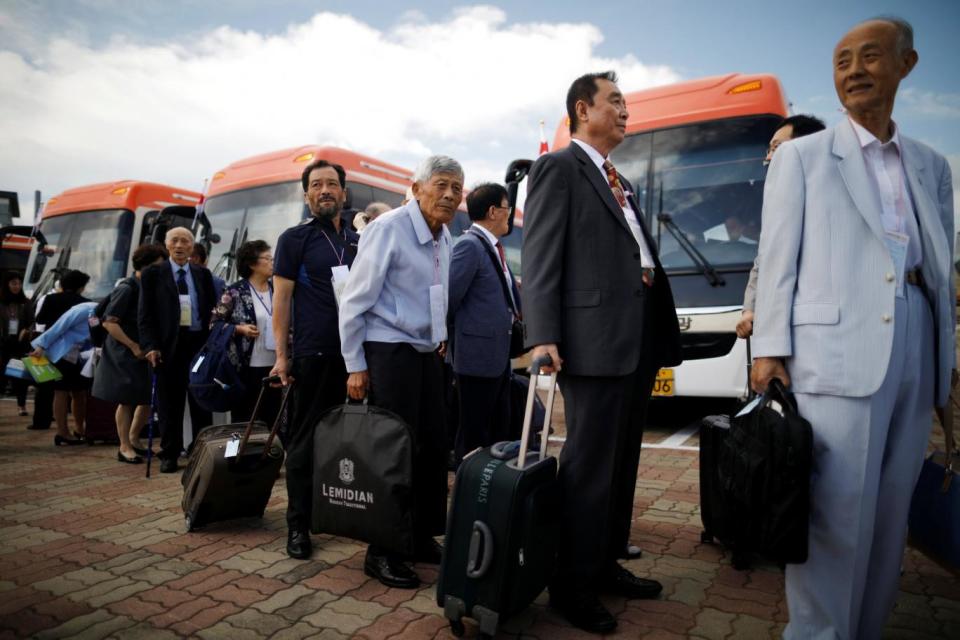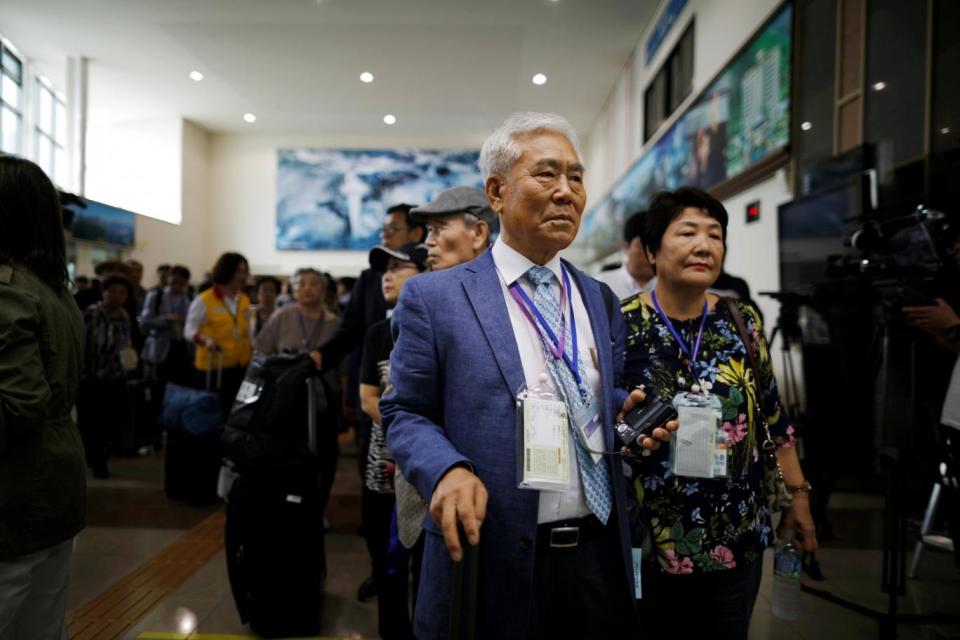South Koreans cross border for emotional first meeting with North Korean family members in 65 years
A group of elderly South Koreans have crossed the border into North Korea for meetings with relatives they haven't seen since they were separated by the Korean War.
More than 50,000 people applied to be part of the momentous occasions with just 93 people selected.
The reunions are highly emotional events with most of the participants elderly people eager to see their loved ones one last time.
Most of the families were separated during the 1950-53 Korean War which ended in a ceasefire.

Moving images show around 90 elderly South Koreans and their family members being transported to a resort in North Korea for the reunion.
Another event will take place later in the week from Friday to Sunday and will involve around 300 South Koreans.
The week-long event at the Diamond Resort in North Korea comes as the rival Koreas boost reconciliation efforts amid a diplomatic push to resolve a standoff over North Korea's drive for a nuclear weapons program that can reliably target the continental United States.
Nearly 20,000 people have participated in 20 rounds of face-to-face reunions since 2000.

Another 3,700 exchanged video messages with their North Korean relatives under a short-lived communication program from 2005 to 2007.
No one has had a second chance to see their relatives.

One woman aged 92 told reporters she was going to be seeing her son for the first since the end of the war. Lee Keum-seom said she became separated from the boy, then four, and her husband as she fled the conflict.
“I never imagined this day would come,” she said. “I didn’t even know if he was alive or not.”

Another South Korean, Moon Hyun-sook, said: “I’m over 90 so I don’t know when I am going to die.” She was travelling to meet her younger sisters. She added: “I’m walking on air now.”
Many of the South Korean participants are war refugees born in North Korea who will be meeting their siblings or the infant children they left behind. Many of those left behind are now in their 70s.
Park Hong-seo, an 88-year-old Korean War veteran from the southern city of Daegu, said he always wondered whether he'd faced his older brother in battle.
After graduating from a Seoul university, Park's brother settled in the North Korean coastal town of Wonsan as a dentist in 1946. After the war broke out, Park was told by a co-worker that his brother refused to flee to the South because he had a family in the North and was a surgeon in the North Korean army.
Park fought for the South as a student soldier and was among the allied troops who took over Wonsan in October 1950. The US-led forces advanced farther north in the following weeks before being driven back by a mass of Chinese forces after Beijing intervened in the conflict.

Park learned that his brother died in 1984. At Diamond Mountain, he will meet his North Korean nephew and niece, who are 74 and 69, respectively.
"I want to ask them what his dying wish was and what he said about me," Park said in a telephone interview last week. "I wonder whether there's a chance he saw me when I was in Wonsan."

During the landmark summit between North and South Korea in April, both Kim Jong-un and Moon Jae-in agreed to resume the reunions.
South Korea estimates that there are currently around 600,000 to 700,000 South Koreans with immediate or extended relatives in North Korea.
The limited number of reunions cannot meet the demands of divided family members, who are now mostly in their 80s and 90s, South Korean officials say.

More than 75,000 of the 132,000 South Koreans who have applied to participate in reunions have died.
North Korea is believed to choose who takes part based on loyalty to its leadership while South Korea uses a computerised lottery to pick participants.
Additional reporting by AP.

 Yahoo News
Yahoo News 
